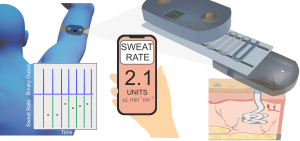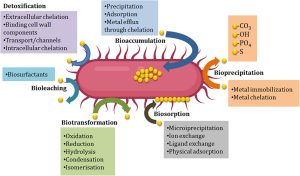
Heavy Metals, Your Immune System, and Autoimmunity
Heavy Metals, Your Immune System, and Autoimmunity The Unseen Link Ever wondered why, despite eating well and cutting out junk, your body still feels off? Or why auto-inflammatory flare-ups don’t
The rapid pace Heavy Metals and Chemicals of modern life often leads to the consumption of convenient fast-food options. But what lies beneath the enticing taste of those processed meals? This comprehensive exploration will guide you through the hidden chemicals and heavy metal detox in fast food, detailing their potential health risks and providing practical solutions for detoxification.
Fast food’s unhealthy nature isn’t just limited to heavy metals and chemicals. Other factors contribute to its harmful effects:
Fast food’s convenience and taste often come at the cost of safety. Some chemicals are particularly concerning:
Not all fast foods are created equal; some may contain more chemicals, heavy metal detox and preservatives than others. Below is a list of specific fast foods, associated heavy metals, and the health effects of these metals.
The consistent consumption of fast-food items rich in heavy metals and chemicals can lead to chronic health issues:
The good news is that it’s possible to detoxify your body from these harmful substances. This involves some lifestyle changes, and the use of natural heavy metal detox supplements:
The first step in detoxing from fast food recognizes the need to remove these harmful substances from your diet. Here’s a guide to help:
The modern fast-food industry best metal detox often relies on preservatives to maintain flavor, appearance, and shelf life. While many of these additives are considered safe in regulated quantities, there are legitimate concerns regarding their potential health impacts, especially with regular and high consumption.
Many of these chemicals are used to preserve, flavor, or enhance the appearance of fast food. Full body detox kit While they are often present in small quantities, regular consumption of these chemicals in fast food might pose health risks. The best way to minimize exposure is to consume a diet rich in fresh, whole, unprocessed foods, and to be aware of food labels and ingredients when purchasing packaged products.
Remember, the risk is often linked to continuous exposure to these substances over time. Occasional indulgence in fast food is generally considered safe, but regular consumption can lead to the accumulation of these toxic substances in the body. Regular monitoring, healthy eating practices, and supportive detox strategies can be essential tools in managing and reducing these risks.
But awareness is the first step towards a healthier lifestyle. Recognizing the hidden chemicals in fast food, and taking steps to detox pack , can lead you on a path toward better well-being.
Note: The information provided here is based on general research and should not replace professional medical advice. The content of heavy metals can vary widely between brands and locations, so it is advisable to refer to local guidelines and consult with healthcare professionals for specific concerns.

Alkaline Detox Diet best body detox best detox kit best detox supplements best full body detox best heavy metal detox best heavy metal detox for adults best herbal detox best metal detox best thc detox kit body cleanse supplements body detoxification supplements Causes Arsenic Poisoning children and heavy metals chlorella detox Copper Toxicity in Drinking Water detox kit detox pack detox supplements detox tablets Does Sweating Really Release early symptoms of heavy metal toxicity full body detox kit hair mineral analysis heavy metal detox heavy metal detox kit heavy metals detox heavy metals in food Heavy Metals in Makeup Heavy Metals in US Foods HMD Heavy Metal Detox HMD Ultimate Detox Pack Natural Heavy Metal Detox natural supplement for aluminum ORGANIC CHLORELLA pure body detox pure body extra detox Sexual desire in women Sources of Copper Exposure Thallium Poisoning toxic metal detox Toxic metals and sex Toxic metals and women's sexual desire toxic metals in food ultimate detox

Heavy Metals, Your Immune System, and Autoimmunity The Unseen Link Ever wondered why, despite eating well and cutting out junk, your body still feels off? Or why auto-inflammatory flare-ups don’t

Wearable Sweat-Induction Devices for Detox What Works, What Doesn’t, and How I Combine Them with Dr. Georgiou’s HMD™ Protocol When people ask me for a “do-able” detox routine that doesn’t

The Microbiome’s Role in Heavy-Metal Absorption and Elimination Why your gut bacteria can make detox easier—or harder (and how HMD™ fits in) If two people eat the same fish, drink
Detoxmetals.com specializes in natural heavy metal detox supplements for eliminating heavy metals naturally from the body.
GMG DA VINCI HEALTH LTD Panayia Aimatousa 300 Aradippou 7101, Larnaca Cyprus
[sibwp_form id=1]
If you’re not receiving an email in your inbox, please check your spam folder. Sometimes legitimate emails can be mistakenly marked as spam. If you find the email there, you can mark it as “Not Spam” to ensure future messages from that sender go to your inbox
